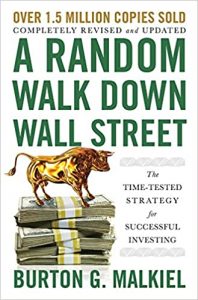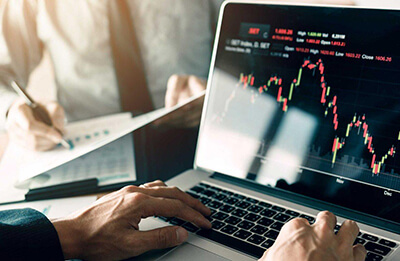Содержание

The central bank will prevent this by slowing down the economy with an interest rate hike that would increase the currency strength. On the other hand, when it comes to the currencies of the emerging markets like Brazil or China, their strength is measured against one of the major reserve currencies. Dollar in the USD/CNY currency pair, the Chinese economy would be getting stronger and gaining more power in the global arena. As the local production activities add further value to the country’s economy, higher purchasing power encourages spending. The surge in the supply and demand stimulates import and export, flourishing the international trade volumes.
Financial institutions have become the biggest players in the FX market. The driving force behind this transition to a market dominated by investors was the search for profitable investment opportunities across borders. For example, a British investor buying equities in the U.S. takes on currency risk by holding shares in U.S. dollars. The investor may want to hedge this risk in an attempt to insulate profits from the impact of any adverse movements in the exchange rate. At the end of World War II, another system of fixed – but adjustable – exchange rates was developed with the Bretton Woods agreement among 40 countries, which tied their currencies to the U.S. dollar.

The fourth module will focus on Immigration, which is probably one of the most controversial subjects today. It will explain how migration affects host countries and it will cover current migration trends. The Chinese yuan, which is pegged to the U.S. dollar, is one of the most prominent examples.
Where and how to buy cryptocurrencies?
Investors also influence prices when they become overly excited over an asset, causing it to be overvalued. They can also cause it to drop when they panic about possible losses. However, the Purchasing Power Parity computation has a few drawbacks as well. The metric does not take into account aspects such as market competition, transport costs, and government intervention.
This market determined evaluation will typically respond to the long and short term economic prospects of both nations and to their respective business and interest rate cycles. Many forex traders wonder what determines the value of a nation’s currency. A number of factors make up the fundamentals of currency evaluation which usually involve the countries’ overall economic prospects, as well as the monetary policy set by each individual country’s central bank. The influence of the players in the FX market has shifted over the years. Traditionally, the most important players in the FX markets were importers and exporters of goods, trading currencies through banks.

This is because Canada is a net oil exporter; when oil prices are high, Canada tends to reap greater revenues from its oil exports giving the Canadian dollar a boost on the foreign exchange market. Such reserve currencies are often held in central banks and can be used to intervene in the markets to support the home currency. Having this status also means that the currency is generally accepted internationally for the payment of debts or for the purchase of commodities. Factors that influence the exchange rate between currencies include currency reserve status, inflation, political stability, interest rates, speculation, trade deficits/surpluses, and public debt.
Public Debt
In the domestic economy, the strength of the national currency is calculated as the purchasing power when buying locally produced goods and services. It is based on income and wages reports which reveal the nominal earnings of the citizens. It also provides room for manoeuvre in case a trading partner’s currency value fluctuates due to external circumstances. As a result, the national currency strengthens in the money markets and gains value in the Forex pairs.
But hyperinflation, an extreme form of inflation in which prices increase out of control, can drastically weaken a country’s currency. Between 2008 and 2009, Zimbabwe experienced hyperinflation after the government overprinted money, in large part to pay off the massive debt that it had accumulated trying to stave off a domestic food shortage. This led to soaring prices and inflation rates of over 100 billion percent.
- Participants in those markets tend to use a variety of factors in determining what positions to take, including the relative economic strength of the two countries, interest rates, and other macroeconomic factors.
- Arbitrage occurs when a pricing error spreads between different currencies that allows investors to take advantage and gain a riskless profit.
- And if a large amount of a currency is lying around in the market (i.e., supply), its value will go down, just like its value would go up if there were not much of it in the market.
- When the demand for Treasurys is high, the value of the U.S. dollar rises.
Most of the major economies around the world now use fiat currencies. Since they’re not linked to any physical asset, governments have the freedom to print additional money in times of financial trouble. While this provides greater flexibility to address challenges, it also creates the opportunity to overspend.
This is because you will be able to get more of that currency with your Bitcoins. This phenomenon can be seen today, since the FED, the ECB and other central banks have been printing more and more money and keeping interest rates artificially low. Arbitrage occurs when a pricing error spreads between different currencies that allows investors to take advantage and gain a riskless profit.
The political climate of a country is assessed for its stability in its national governance, and in the global political realm. The value of currency is directly affected by the country’s allies and enemies, as well as political agendas. The Fair Market Value of a currency is based on the agreed amount at which it is bought and sold. Many factors are considered about the country when determining a reasonable trade value.
Government control of currency exchange rates has given way to a free-market approach.
Salary demands will rise accordingly, and the companies won’t be able to sustain profitability with high wages and expansion costs at the same time. Ultimately, fiat currency is only as good as the society that issues it. In this article, we shall explore why this is the case and why the value of a nation’s currency tends to fluctuate with perceptions regarding its economic future. Over time, markets do tend to get currency values right, but they can also be way off. The Big Mac index, although certainly not perfect, provides one way to look at just how out of whack markets are at any given time.
Core inflation is the price of everything except food and gas prices, which are very volatile. Foreign Exchange Reserves – the amount of currency held by foreign governments. When a foreign government holds more currency, the lower the supply of that currency. The chance for regulation by governments is very high once the cryptocurrency has gone mainstream. You should also bear in mind that these regulations could lead digital money to become more centralized.
The nominal income value is then adjusted to the inflation rate of the observed period to find the real income value. The real income figure represents the true economic value of the income amount in the pre-inflation economic conditions. However, in practice, we don’t measure the value of currency in terms of a theoretical “standard unit”.
While some economists postulate that fluctuations in the forex market are essentially a random walk in time, and this random walk theory has even been used in the development of currency option pricing models. Volatility profiles based on trailing-three-year calculations of the standard deviation of service investment returns. We Fools may not all hold the same opinions, but we all believe that considering a diverse range of insights makes us better investors.
Purchasing stock grants you ownership in a company, whereas buying bitcoin grants you ownership of however much cryptocurrency your money bought. Normally, increasing economic value of a currency will enable its spenders to purchase larger amounts of products, while its earners will enjoy further financial empowerment with more valuable income. When confidence in a nation’s long-term economic prospects are strong, the value of its currency tends to be well supported. However, if confidence is damaged, for example by war or economic mismanagement, then the value of the currency will fall. In an extreme scenario, one where the economic survival of a nation is questioned, the value of a currency can collapse resulting in a condition known as “hyperinflation”.
quiz: Cryptocurrencies
Not only does the war itself raise heightened economic concerns, but currency is either strengthened or weakened by the purpose of the war, the country’s role and allies in the conflict. For example, if the demand for U.S. dollars by Europeans increases, the supply-demand relationship will cause an increase in the price of the U.S. dollar in relation to the euro. Envelope Light The Daily Upside Newsletter Investment news and high-quality insights delivered straight to your inboxIcon-Investing Get Started Investing You can do it. In 1971, President Richard Nixon took the U.S. off the gold standard, saying that the U.S. would no longer convert dollars to gold at a fixed value.
Guide: All About Exchange Rates – CompareRemit
Guide: All About Exchange Rates.
Posted: Wed, 25 Jan 2023 08:00:00 GMT [source]
Similarly, as the pandemic rips though the US, revealing mismanagement and negligence of the effects of the virus, the dollar has recorded its worst monthly performance in 10 years, falling 5% in July alone. Trading in currencies has not always been as active, mainly because exchange rates were not flexible, or “free floating,” as most major currencies are today. In the nineteenth century, governments began to back their currencies with gold reserves https://forexbitcoin.info/ so the value of a currency was fixed at a certain amount of gold. This gold parity provided stability in the value of the currency and gave people confidence in the currency. Introduced this “gold standard” in 1821, and by the beginning of the twentieth century, most major players in world trade had followed. But most exchange rates aren’t fixed—they’re “floating,” meaning their values constantly change depending on various economic factors.
Opening a trading account
High inflation erodes the purchasing power of the currency holder and increases the cost of local goods. Countries that experience higher inflation may experience a decrease in currency demand, and therefore a depreciation in currency value. Supply and demand are influenced by a number of factors, including interest rates, inflation, capital flow, and money supply. Since each individual’s retirement withdrawal calculator situation is unique, a qualified professional should always be consulted before making any financial decisions. Investopedia makes no representations or warranties as to the accuracy or timeliness of the information contained herein. Bitcoin’s price is volatile, so the $100 you spend on portions of a bitcoin today may not be worth $100 tomorrow or even in the next 30 minutes.
Derivatives Held by Investors and How They Are Taxed in US – The National Law Review
Derivatives Held by Investors and How They Are Taxed in US.
Posted: Wed, 08 Mar 2023 19:51:43 GMT [source]
© Gumpanat/Shutterstock.comIf you travel internationally, you most likely will need to exchange your own currency for that of the country you are visiting. The amount of money you’ll get for a given amount of your country’s currency is based on internationally determined exchange rates. Fixed exchange rates use a standard, such as gold or another precious metal, and each unit of currency corresponds to a fixed quantity of that standard that should exist. Treasury determined that it would buy and sell one ounce of gold at a cost of $35.
How To Measure the Value of the Dollar
We cannot guarantee the timeliness, accurateness, or completeness of any data or information used in connection with you holding any exposure to cryptocurrencies. The information provided on this website is included for reference only and we do not make any representation regarding the accuracy of such data. If a country has high interest rates, it may not be good for citizens that have high exposure to debt, but it would attract the interest of investors. As soon as money markets sense that interest rates might go up in a particular country, investors will invest in that currency.
Most countries have their own currency, but there are some exceptions. Most notably, the euro is a currency shared by nineteen European countries. Having a shared currency makes it easier for citizens of the eurozone, the area that makes up these nineteen countries, to travel and invest across borders and compare prices without having to convert numbers. For small European countries, a single currency boosts investment; for big European countries, it creates easily accessible markets. Countries can encourage domestic companies to make foreign direct investment. Foreign investment in a country raises the demand for that country’s currency, as investors need the domestic currency to hire workers and build infrastructure in that country or to make cash investments there.
